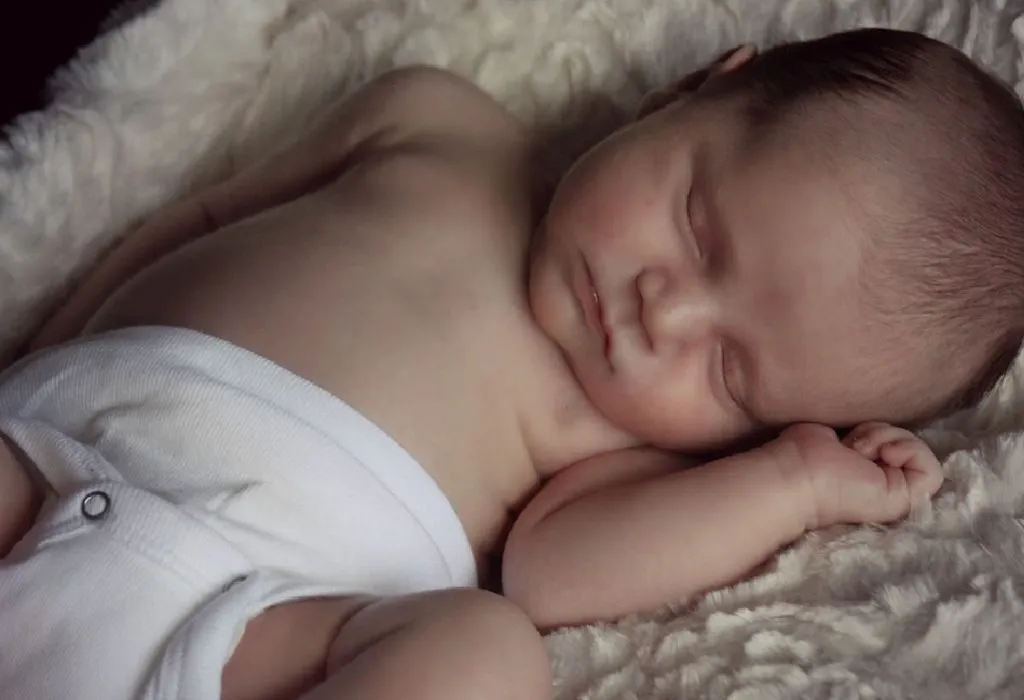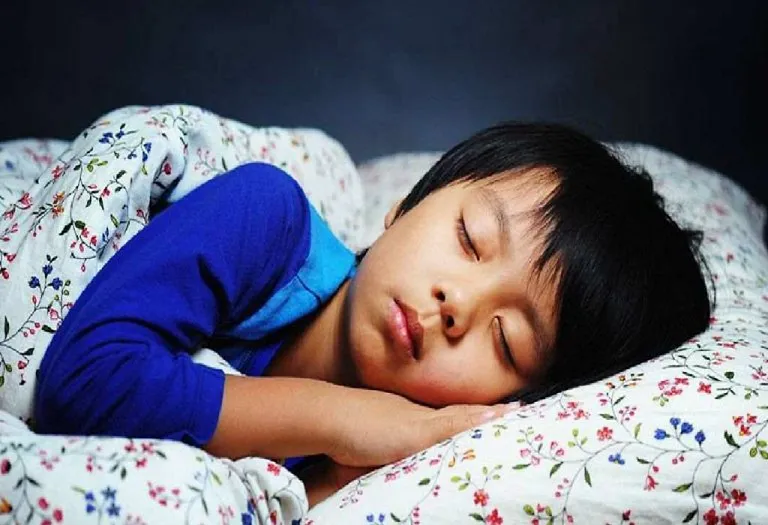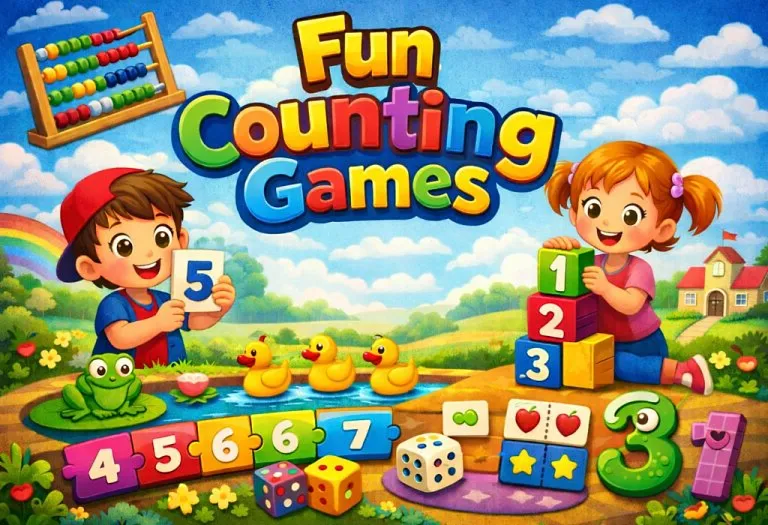9 Signs That Your Baby Is Not Getting Enough Sleep
- What Is the Recommended Sleep Duration for Children?
- Importance of Sleep for Children
- 9 Signs Your Child Is Not Getting Enough Sleep
- Why Is Sleep Deprivation a Major Concern?
- FAQs
Is your baby not sleeping enough? Is he cranky and irritable and losing appetite? Well, sleep can affect babies’ overall growth and development. Therefore, it’s crucial for parents to understand the signs of a newborn not getting enough sleep and get to its root cause so necessary measures can be taken. Putting your tired baby to sleep is the best and most logical way to provide him with the necessary rest. If he gets overtired or too stimulated, he will become irritable and will not fall asleep easily. On the other hand, if you start putting him to sleep too soon, you will have to struggle even harder. It is crucial, therefore, to take him to bed just before he reaches that ‘too tired’ state.
So, how can you tell the signs of tiredness that indicate your little one is in need of sleep?
As your child grows, her capacity to stay awake increases. By the time she completes a year, she will be able to stay awake for about three hours at a stretch. And after that, till about 18 months, she will be good if she gets her morning and afternoon naps. However, a lot depends on individual sleep patterns. For example, a baby who is used to shorter naps might be ready to sleep earlier, thus making the time spans mentioned here only a rough guide at best.
While sleep patterns and duration may differ, one thing is certain: ALL babies will show negative consequences if they don’t get enough sleep!
But how do you tell whether or not your munchkin is getting enough sleep?
What Is the Recommended Sleep Duration for Children?
The requirement of sleep for a person changes with their age and continues to vary as they develop. The experts at the National Sleep Foundation have devised sleep duration recommendations for healthy individuals (1):
- Newborns (0 – 3 months) 14 – 17 hours
- Infants (4 – 11 months) 12 – 15 hours
- Toddlers (1 – 2 years) 11 – 14 hours
- Pre-schoolers (3 – 5 years) 10 – 13 hours
- Shool-aged children (6 – 10 years) 9 – 11 hours
- Teenagers (14 – 17 years) 8 – 10 hours
Importance of Sleep for Children
Enough sleep is a significant factor in children’s overall growth and development (2). It is as good as a heart breakfast. Good sleep With insufficient sleep, children experience weight issues, growth issues, low immunity which leads to frequent illness, stress, irritation, fatigue, and poor brain development. Sleep deprivation also causes behavioural issues, learning problems, poor perforrmance academically, and frequent negative emotions (3).As per Johns Hopkins Medicine, sleep-starved children easily get frustrated and are often restless and fidgety (4). Therefore, it is extremely important for young infants, toddlers, teens, and adults to have enough and sufficient sleep
9 Signs Your Child Is Not Getting Enough Sleep
As parents, we sometimes believe that the child will fall asleep when she tires herself out. It seems like the natural thing to do, right? Wrong!
Tired babies often become overactive and irritable and find it even more difficult to fall asleep. Toddlers will typically turn defiant or throw tantrums. Sometimes, this kind of response is also concerned with growth spurts. A child that is physically tired, may still be experiencing a cognitive growth spurt, which makes it difficult for her to fall asleep!
While this is a passing phase, it is important as a parent to ensure your child is still getting adequate sleep, irrespective of what stage they are at!
Here are some of the typical signs that your child will show if she is not getting enough sleep.
Your Baby Is Not Getting Enough Sleep if –
1. She is crying more than often
Crying is one of the signs of baby not getting enough sleep. Every mother knows on instinct just how much her baby cries. Mothers are tuned in to the natural, innate habits of their babies. If your baby seems to be crying more than usual for no apparent reason, it may be a sign she is tired and sleep-deprived.
2. She is turning her face away
A sleep-deprived baby will try and turn away from things that prompt her to stay awake in her bid to lull herself to sleep. While this is common around nap-time and bedtime, a baby that’s doing this at other, normal hours of the day is majorly sleep-deprived. If you find your baby looking away from your, or daddy, or her toys, it is a sure sign she is tired and wants to sleep
3. She brings her hands to her face
Around bedtime, a baby will tend to bring her hands to her face – she may rub her eyes and nose, hold her hair, or caress her own face (5). However, a baby who is constantly doing this is clearly ‘over-tired’ and sleep-deprived.
4. She is extra clingy
A sleep-deprived baby will be more clingy than usual during the normal/regular hours of the day. She may refuse to let go of you, may cry if you put her down, and may insist on being held. She is trying to lull herself to sleep! So, a clingy baby is a sign of a sleep-deprived baby.

Your Toddler Is Not Getting Enough Sleep If –
1. She is fussy, cranky or irritable
This behaviour is typically observed around her naptime and/or bedtime. She may just act cranky or throw a full-blown tantrum!
2. She is hyperactive
If you know (according to the sleep routine you have cultivated) that your little one should be actually getting ready to retire to bed, and you instead find her jumping up and down on the bed or running from one room to another, it is a sign she is in fact super tired and sleepy but is finding it difficult to sleep.
3. She becomes clumsy
A mobile kid – baby and toddler both – may become clumsy around bed-time and may end up falling or losing balance. While this may be normal around sleepy-time, this kind of behaviour will increase during the daytime too, depending on just how sleep-deprived your child is. If your child is acting like a pro-clutz, lure her to the bed and help her fall asleep!
4. She is becoming fussy about her meals
According to a study conducted by Tauman and his team on more than 600 American babies, it was found that fussy eaters typically fall asleep later than usual and may keep waking in the night, leading to a disturbed sleep pattern. If your child is a fussy eater, chances are she is also sleep-deprived.
5. She does not wake-up easily
A well-rested child that has had a good amount of sleep will wake up very naturally, with even the smallest of stimulations such as being called out, or facing the light, etc. A sleep-deprived child, on the other hand, will find it very difficult to awaken! You might have to work twice as hard to wake them from their slumber, and even after being woken up, they may not be fully awake. A textbook sign of a sleep-deprived child.

Why Is Sleep Deprivation a Major Concern?
According to some studies, lack of sleep in babies has even been linked to behavioural problems later in life such as ADHD, to chronic sleep disorders like sleep apnea, and to physical problems, such as exhaustion and lack of energy the next day. There could be several things that are interfering with your child’s sleep, such as an illness, a growth spurt, travel, or general over-stimulation.
No matter what the cause may be, lack of sleep is a serious concern that needs to be addressed in time. You can try different things to solve the problem:
- Look into your baby’s dinner.
- Consider using white noise.
- Develop a proper sleep routine.
- Avoid common sleep- and nap-time mistakes.
FAQs
1. What do I make out of it if my baby suddenly breaks away from his current sleep routine?
If your little one has took a break away from his consistent sleep routine suddenly and is not sleeping as usual anymore, then this could be a case of sleep regression in babies. It usually occurs around four, eight, 12, and 18 months of age (6). Rest assured, it is very common in babies and goes back on its own, and babies fall back into their usual sleep routine. Continue with the existing sleep and bedtime routine.
2. It is normal for my baby to frequently wake up at night?
Yes, newborns or young infants in there first few month of birth need to eat frequently, so you may expect them to wake up several times at night for feeds (7). As they grow, they will fall into longer stretches of sleep and may wake up once in a while for night time feedings.
3. How can I ensure my baby sleeps through the night without any break?
Besides hunger, babies can also wake up at night because of disturbance in their atmosphere or any illness/infection. You can sleep train your little one by keeping their room quiet and cool and keep the distrubances to the minimum. Make sure they are well fed and not too much. You can also sing lullabies or give them a gentle massage to lull them into deep sleep (8).
Understanding your baby and their signals is one of the hardest challenges of parenthood. But the sooner you learn to recognize signs of distress, especially tiredness, the faster you will be able to help your darling.
References/Resources:
1. Hirshkowitz. M, Whiton. K, et al.; National Sleep Foundation’s sleep time duration recommendations: methodology and results summary; Sleep Health.; PubMed; https://pubmed.ncbi.nlm.nih.gov/29073412/; March 2015
2. Sleep in Your Baby’s First Year; Cleveland Clinic; https://my.clevelandclinic.org/health/articles/14300-sleep-in-your-babys-first-year
3. Insufficient Sleep in Children; Children’s Hospital Colorado; https://www.childrenscolorado.org/conditions-and-advice/conditions-and-symptoms/conditions/sleep-deprivation/
4. Sleep and Your Child; Johns Hopkins Medicine; https://johnshopkinshealthcare.staywellsolutionsonline.com/Library/DiseasesConditions/Adult/Men/1,2909
5. Infant Sleep; Stanford Medicine; https://www.stanfordchildrens.org/en/topic/default?id=infant-sleep-90-P02237
6. Understanding and Navigating Sleep Regressions; Penn Medicine Lancaster General Health; https://www.lancastergeneralhealth.org/health-hub-home/motherhood/the-first-year/understanding-and-navigating-sleep-regressions
7. Sleep 0 – 3 months; Department of Health Healthy WA; https://www.healthywa.wa.gov.au/Articles/S_T/Sleep-0-3-months
8. Preventing sleep concerns (7) – babies 0 to 6 months; BetterHealth Channel; https://www.betterhealth.vic.gov.au/health/healthyliving/preventing-sleep-concerns-babies-0-6-months
Also Read:
Baby Fighting Sleep
How to Make a Baby Sleep at Night?
Is Your Baby Sleeping Enough for His Age?
Baby Sleep Chart – A Must See for All Parents
Was This Article Helpful?
Parenting is a huge responsibility, for you as a caregiver, but also for us as a parenting content platform. We understand that and take our responsibility of creating credible content seriously. FirstCry Parenting articles are written and published only after extensive research using factually sound references to deliver quality content that is accurate, validated by experts, and completely reliable. To understand how we go about creating content that is credible, read our editorial policy here.
























.svg)


















